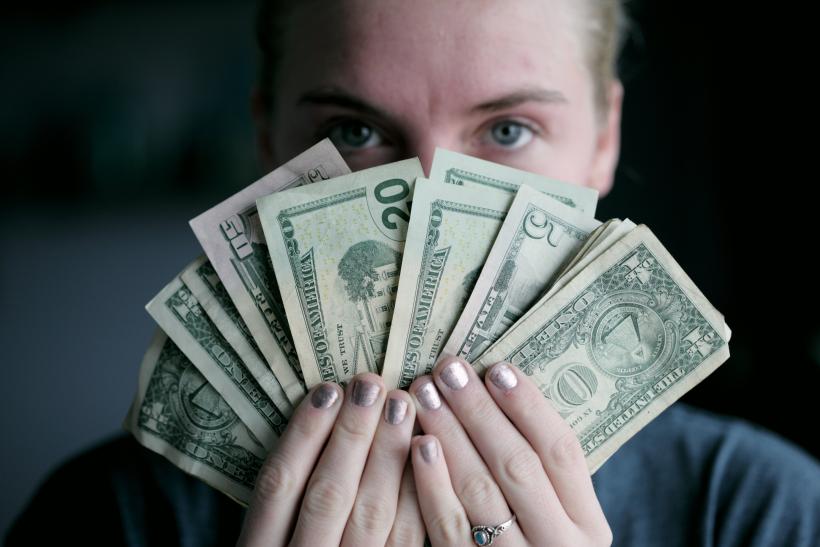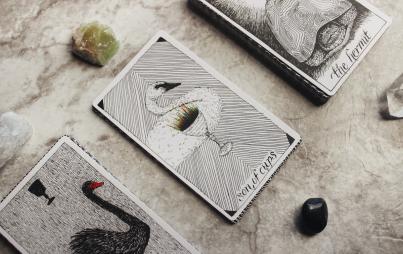
Photo by Sharon McCutcheon on Unsplash
What started as a small niche movement intended to challenge the idea that doing things for yourself was selfish, self-care has become an increasingly mainstream idea. I remember first seeing the term pop-up in my feminist circles, blogs, and workspaces, where we were rejecting the notion that you should be loyal to your employer to the detriment of your health and wellbeing.
In a culture that often expects "dedicated" workers to be the first in the door and the last to leave and chastises those who don't put their work before their personal life, self-care was put forth as oppositional to these forces. Instead of viewing your value as a person according to your level of productivity, self-care views human worthiness as inherent.
A few years later, I see the term cropping up on blogs, in books, on mainstream TV, and even in employee handbooks. Self-care has officially gone from a small resistance movement to a hip new trend that all the cool kids are doing. Great news, right? In theory, yes. We should all be more rested, happy, and unapologetic about acknowledging our needs. In practice however, it’s often a different story.
I propose going back to basics, back to what self-care is supposed to be about. Instead of using Fenty Beauty products or trips to Bliss Spa as tools of self-love, let’s try actually loving ourselves with healthy habits like sleep, laughing, resting, and connecting. When we do this, we’re the real winners, rather than the money-hungry brands.
The self-care trend has become a hot commodity in the retail world, with many beauty, wellness, and health brands angling their products along these lines. An average scroll through Instagram will undoubtedly be filled with influencers and brands talking about how their $30 highlighters, $80 face creams, and $200 facials help people practice self-care.
The numbers prove that this beauty product/self-care connection isn’t just a creation of the Instagram algorithm, but a result of an actual shift in the economy. A study from Pew on Millenials found that this generation is spending more on self-improvement than any generations to come before them and by pretty large margins despite the fact that they are earning less than prior generations. Another study from MyProtein found that Americans are spending more on fitness regimens than college tuition. Research from Estee Lauder found that women are spending more on beauty products, with their CEO even connecting this change in consumer spending to Instagram. Self-care is also an ever-growing new sector in the economy, with its current evaluation sitting around $10 billion.
You Might Also Like: 'Nobody Can Love You Until You Love Yourself' Is Bullsh*t
Not only are we spending more money on personal care products and beauty these days, but we’re also feeling increasingly insecure without these items. A new national study from SkinStore for International Women's Day examined women’s attitudes toward makeup, surveying 2,000 women across the US. Amongst their findings, they discovered that only 15% of women are completely satisfied with their natural appearance without any enhancement. Half said they skip work if they can't show up in a full-face of makeup and another 50% said they wouldn’t feel comfortable even making eye contact when going makeup-free. With stats like that, it makes you wonder if the self-care movement is having some unintended consequences on our self-esteem and body image.
With all of this focus on loving yourself and experiencing the pleasures life offers without apology, is it possible that we have been bought and sold by beauty companies that have jumped on the self-care bandwagon?
A quick Google search reveals we’re all a little confused about what self-care actually means. Is it taking quality time for yourself? Escaping from the traumatizing realities of existence on planet Earth? Or is it creating a life for yourself that you don’t feel a need to escape from?
The meaning of self-care is ambiguous. This ambiguity creates a ripe atmosphere for advertisers, brands, and companies with wellness products to come in and get you to buy their stuff under the guise of being kind to yourself.
Self-care is being used to take the guilt out of "frivolous" purchases so you don’t stop yourself from buying because you don’t have the cash, feel undeserving of such high-end products, or have to make sacrifices elsewhere in your budget to afford the feeling of exclusivity that these brands provide.
With social media, this entire process becomes even more potent since you’re being bombarded with images and messaging on a constant basis. Plus, the lines between commercial and personal have become increasingly blurry. Just yesterday, I opened an email from a health and fitness blog I subscribe to. They used some marketing tagline that had the message of "you deserve it!" connected to taking care of yourself by purchasing their ridiculously priced wellness products that included a $54 box of chocolates and $220 running shoes. Immediately, I felt this twinge of confirmation, like “YEAH! I DESERVE IT!” and spent ten minutes scouring the website to try and find something on sale or at least under $25. I was not successful and started trying to rationalize buying the aforementioned pair of running shoes. Then I realized I was falling into the "self-care as consumerism" trap.
I’m also willing to bet there is a connection between the increased spending on beauty, the self-care movement, and how we feel about our bodies. We are clearly spending more on our beauty and fitness routines while also still feeling bad about how we look and how much we spend — except now we have this thing called "self-care" we can use to explain our spending. Sounds like a recipe for bad body image and empty wallets if I’ve ever heard of one.
I propose going back to basics, back to what self-care is supposed to be about. Instead of using Fenty Beauty products or trips to Bliss Spa as tools of self-love, let’s try actually loving ourselves with healthy habits like sleep, laughing, resting, and connecting. When we do this, we’re the real winners, rather than the money-hungry brands.








